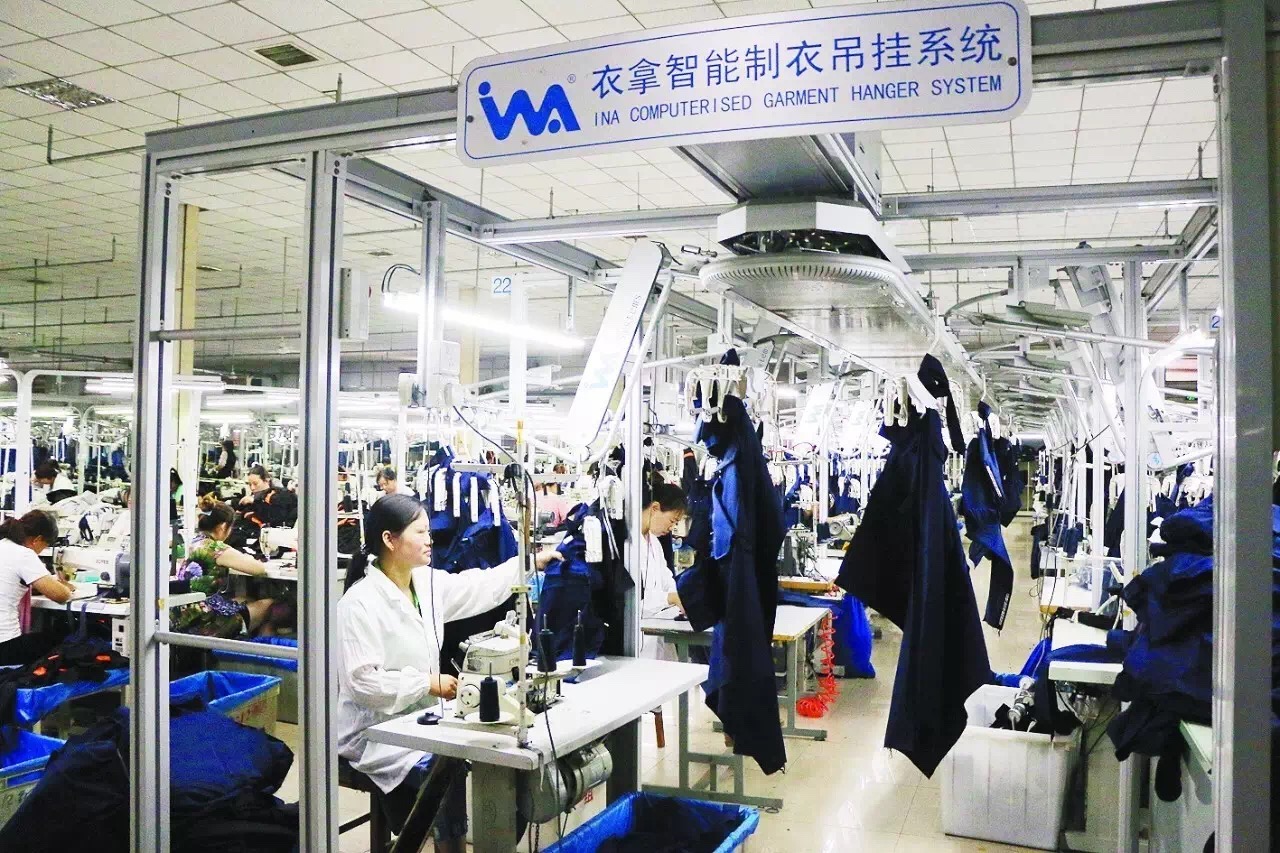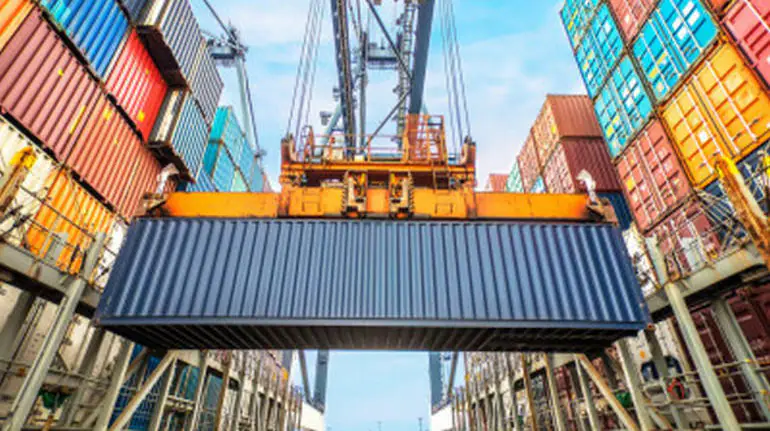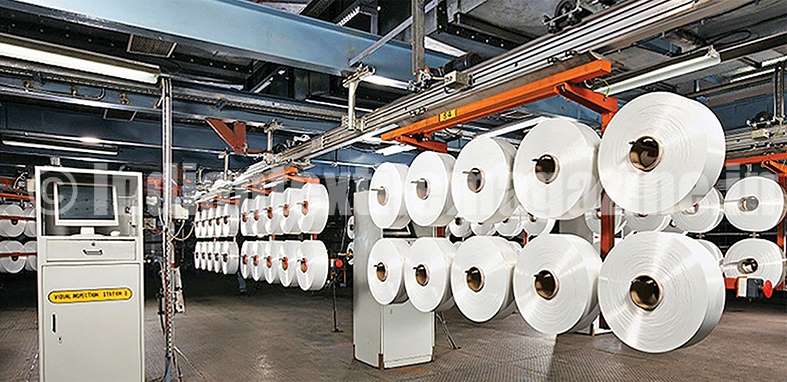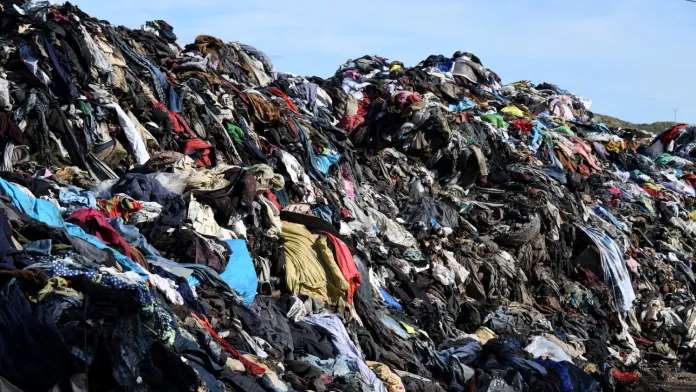FW
Six groundbreaking cellulose fibre innovations are vying for the coveted "Cellulose Fibre Innovation of the Year" award at the upcoming "Cellulose Fibres Conference" in Cologne, Germany, on March 13 and 14, 2024. The nominees showcase advancements in sustainability and resource efficiency across various industries within the cellulose fibre value chain.
The nominees include:
Straw Flexi-Dress (DITF & VRETENA, DE): A versatile knitted garment made from cellulose filaments produced using environmentally friendly spinning technology, focusing on local and circular fashion.
HONEXT Board FR-B (Honext Material, ES): A flame-retardant board made from 100% upcycled industrial waste fibres, achieving Cradle-to-Cradle Certified GOLD and contributing to a carbon-negative footprint.
LENZING Cellulosic Fibres for Glacier Protection (Lenzing, AT): Utilizing cellulosic fibres to create geotextiles for glacier protection, addressing the environmental challenge of microplastics from synthetic alternatives.
RENU Jacket (Pangaia & Evrnu, UK & US): A chemically recycled denim jacket made from 100% Nucycl technology, showcasing breakthroughs in recycling cellulosic textiles.
Textiles Made from Easy-to-dye Biocelsol (VTT Technical Research Centre of Finland, FI): Chemically modified Biocelsol fibres reducing wastewater in the dyeing process, offering environmentally friendly dyeing solutions.
A New Generation of Bio-based and Resource-efficient Fibre (TreeToTextile, SE): A sustainable fibre with a natural feel similar to cotton, aiming to complement or replace traditional fibres with low environmental impact.
The awards, sponsored by GIG Karasek, will be determined through voting by conference participants, emphasizing the industry's commitment to recognizing and promoting innovative and sustainable solutions in cellulose fibre production. Each innovation reflects a promising step towards a more environmentally friendly and responsible future in the cellulose fibre industry.
Hyosung, anticipating the denim industry's shift towards agile sourcing and sustainable textiles, unveiled its 2024 solutions at Kingpins NYC. They emphasize efficient global sourcing for optimal materials, ethical production, and responsiveness to trends.
Simon Hong, Hyosung's Denim Marketing Lead, sees sourcing as key in 2024, with global strategies and sustainability playing a crucial role. Hyosung showcases its commitment to innovation with a unique portfolio of eco-friendly denim solutions.
A highlight is the expanded regen Bio-Based spandex line, offering yarns with 70% and 98% renewable resources, boosting sustainability transparency. In 2020, Hyosung launched RCS-certified regen Spandex, made entirely from recycled waste, which has been embraced by denim giants. Circularity remains a priority, with denim companies adopting the Ellen MacArthur Foundation's Jeans Redesign guidelines for recyclable denim.
Hyosung also expands its CREORA 3D Max spandex line with sustainable and functional options. These include USDA and SGS-certified regen Bio-Based 3D Max, RCS-certified 100% recycled regen 3D Max, and the CREORA Easy 3D Max for superior softness and stretch.
Hyosung's focus on global sourcing, sustainable materials, and innovative solutions positions them as a leader in the evolving denim landscape.
Trivandrum Spinning Mills (TSM) is weaving a new future with a major quality upgrade. They're ditching old tech for a modern open-end spinning machine, promising a yarn revolution. This unique mill, spinning magic from waste cotton, is the only one of its kind in Kerala.
Leading the charge is Anil Kumar, director of handlooms and textiles, doubling as TSM's managing director. He's confident the new machinery, currently being installed, will dramatically boost yarn quality. But the journey isn't yarn-easy. The mill, with its four permanent and 70 mostly female contract workers, relies on Tamil Nadu for raw materials and sales.
Volatile markets and rising cotton prices haunt TSM. Smaller mills like them, Anil Kumar acknowledges, are often forced to sell yarn at rock-bottom prices just to stay afloat.
Despite challenges, TSM is ambitious. They're currently operating at 70% capacity but hope the upgrade will unlock new markets and boost sales. With better quality yarn and a modern edge, Trivandrum Spinning Mills is poised to spin a brighter future for itself and Kerala's textile industry.
Tiruppur's knitwear titans, responsible for over half of India's exports, are pushing for a "sustainable cluster" designation from the Tamil Nadu government. The move aligns with growing global demand for eco-friendly fashion and comes amid the EU's Carbon Border Adjustment Mechanism (CBAM).
Recognizing the challenges of small units adopting renewable energy, the industry proposes a shared green energy facility. Substantial investments in zero liquid discharge, green energy, and tree planting position Tiruppur well on the path to ESG compliance.
President K.M. Subramanian highlights their "carbon negative" status, generating four times the required electricity through wind and solar power. However, he emphasizes the need for government support, urging capital subsidies for ESG investments and green energy adoption, including Common Effluent Treatment Plants.
Revamping the textile park scheme with stakeholder input is another key demand. With a focus on maintaining global competitiveness, Tiruppur seeks to strengthen its sustainability practices while aligning with international standards.
This move marks a significant step for the Indian textile industry, demonstrating a proactive approach to embracing environmental responsibility and ensuring future success in the global market.
With 55% of India's knitwear exports flowing from Tiruppur, staying competitive means going green. This bold request is a clear signal that the Indian textile industry is ready to weave sustainability into its very fabric.

The bustling world of textiles and apparel finds itself in a complex situation of progress and peril in 2024. While consumer demand for sustainable and conscious clothing rises, challenges and concerns weave a tangled web across key regions, economies, and industry segments. Here is a look at the current state of this dynamic industry, examining the pivotal points, pressing concerns, and intricate issues within.
Regional tensions and shifting sands
Asian Crossroads: In China, the traditional manufacturing hub, rising labor costs and environmental concerns are prompting brands to diversify. Vietnam and Cambodia emerge as alternatives, but infrastructure limitations and labor rights issues add complexity. Indian cotton, the world's largest producer, faces a 30 per cent price spike due to inflation and climate change, squeezing textile manufacturers.
European Ambitions: Driven by the Green Deal, European consumers crave sustainable fashion. H&M and Zara invest heavily in eco-conscious lines, but greenwashing concerns linger. A 2023 Fashion Revolution report reveals only 2 percent of fast fashion brands use 100 per cent recycled materials, highlighting the distance between rhetoric and reality.
American Shift: North America witnessed the athleisure boom, with activewear sales projected to reach $350 billion by 2024. Lululemon thrives on its high-quality, functional apparels and strong community, while Nike's Flyknit technology showcases the innovative strides in this segment.
Segmentation battles and shifting paradigms
Fast Fashion's Crossroads: Sustainability remains a PR battleground. Shein, the world's largest fast fashion retailer, sees its first profit decline, showcasing the vulnerability to economic headwinds. Reformation's focus on upcycled materials demonstrates the potential for a more responsible model.
Luxury's Green Revolution: Gucci's "Off the Grid" collection redefines sustainable luxury, while Burberry's digital-first approach and Louis Vuitton's "My LV" personalization program illustrate the shift to consumer-centric experiences.
Activewear Embraces Technology: Patagonia's ‘NetPlus’ collection, made from recycled fishing nets, showcases the sustainability focus. Nike's Flyknit technology and Adidas' biometrics integration highlight the increasing tech-enabled landscape.
Challenges and Concerns: A global canvas
Supply Chain Tangles: The war in Ukraine disrupts cotton supply chains, impacting Bangladesh, which relies heavily on Ukrainian cotton. Diversification efforts face infrastructure and labor issues in new regions.
Cost Crunch Squeezes Margins: Rising raw material and energy costs hit all segments. Indian textile manufacturers and Shein's profit decline exemplify the pressure on price-sensitive players.
Sustainability's Double-Edged Sword: Greenwashing remains a major concern, eroding consumer trust. Only 24 per cent of major brands disclose complete supplier information, says Fashion Revolution, underscoring the need for greater transparency.
Navigating the Complexities
The global textile and apparel industry faces a mix of challenges and opportunities. Understanding the unique landscape of regions, economies, and segments is crucial. As Levi Strauss & Co. CEO Chip Bergh says, "The future belongs to those who can connect deeply with consumers, embrace technology, and operate with an eye toward sustainability."
Adapting and innovating are key to thriving in this dynamic world. Embracing regional diversification, investing in technology, and prioritizing true sustainability are threads that can weave a stronger future for the textile and apparel industry. Aditya Birla Group Chairman Kumar Mangalam Birla aptly puts it, "The future belongs to those who can adapt to change, embrace innovation, and build resilient supply chains."
National Council of Textile Organizations (NCTO) President and CEO Kim Glas has voiced strong support for a letter from House Select Committee leaders urging Department of Homeland Security (DHS) Secretary Alejandro Mayorkas to intensify enforcement of the Uyghur Forced Labor Prevention Act (UFLPA). The letter, spearheaded by Chairman Mike Gallagher (R-WI) and Ranking Member Raja Krishnamoorthi (D-IL), emphasizes the urgent need to combat unfair trade practices facilitating the importation of goods produced with forced labor.
Glas highlights the devastating impact of the UFLPA's incomplete enforcement and the de minimis loophole on the U.S. textile and apparel industry. The surge of Chinese cotton from Xinjiang, notorious for forced labor practices, poses a significant threat to American manufacturers. The call for immediate action resonates as the textile industry faces unprecedented demand destruction and challenges exacerbated by lax customs and trade law enforcement.
The NCTO emphasizes the urgency of addressing fraudulent origin claims and the de minimis loophole, which allows millions of illegal products to flood the market daily. Failure to curb these practices not only jeopardizes American manufacturers and workers but also endangers crucial supply chains producing essential goods, including life-saving personal protective equipment (PPE) and military products.
Glas concludes by stressing the imperative of a comprehensive government solution to confront China's predatory trade practices and prevent the infiltration of forced labor products into the U.S. market. The fate of domestic and Western Hemisphere supply chains hangs in the balance, with potential repercussions for factory closures and worker layoffs if immediate action is not taken.
In a remarkable fusion of Danish design and international flair, Pure London x JATC, the London Festival of Fashion, is set to host an extraordinary showcase of diverse Danish brands from renowned fashion powerhouses DK Company and Godske. The event, slated for February 11-13, 2024, at the iconic Olympia London, signals a resounding affirmation of the UK fashion market's growing strength.
Leading the Danish contingent is b.young from DK Company, a brand celebrating individuality through warm hues, inviting textures, lively patterns, and unique accessories. Sales Director Kim Kristensen sees the event as a strategic platform for forging connections and exploring growth opportunities in the UK market. ICHI, Fransa, Saint Tropez, Soaked In Luxury, and other dynamic brands will also captivate buyers with trend-led collections and versatile designs.
Godske, another Danish fashion powerhouse, promises to wow buyers with its sophisticated and elegant offerings. Brands like NOEN, Gomaye, Molly Jo, and Robell specialize in contemporary, timeless, and stylish pieces. Mature fashion is well-represented by SUNDAY, Habella, Tia, and I'cona, offering chic and classic collections.
Gloria Sandrucci, Pure London Event Director, emphasizes the international scope of the event, praising the confidence displayed by DK Company and Godske in targeting the UK customer. With over 300 brands on display, Pure London x JATC promises to be a unique opportunity for both established and emerging fashion players to connect and thrive. The combined show, uniting JATC and Pure London, is anticipated to provide a comprehensive and exciting platform for the fashion industry, fostering connections and rejuvenating the sector post-pandemic.
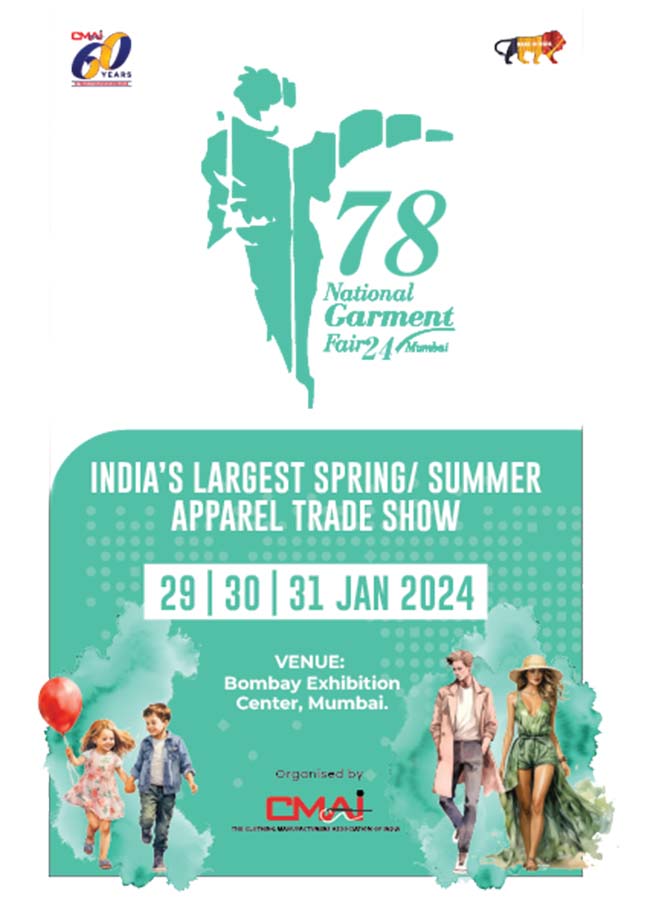
The Clothing Manufacturers Association of India (CMAI) is gearing up to unveil the 78th edition of the National Garment Fair 2024 (NGF 2024) in Mumbai from January 29 to 31, 2024. This premier event is set to showcase the offerings of over 950 garment manufacturers, featuring an extensive array of 1120 apparel brands spanning Women’s wear, Men’s Wear, Kids wear, and Accessories at the Bombay Exhibition NESCO Complex in Goregaon East.
Key platform for industry interaction
The NGF 2024 stands as the much-anticipated biannual trade show that acts as a crucial bridge, connecting national and regional brands, manufacturers, apparel designers, and fashion accessories manufacturers with retailers, agents, distributors, and e-commerce companies. It has earned its reputation as India’s leading trade fair, providing a comprehensive sourcing platform that optimizes both time and cost efficiency for all stakeholders involved.
Insights from industry leaders
Rajesh Masand, President of CMAI, emphasized the significance of NGF 2024 in gauging the industry's future, stating, “The apparel industry has faced challenges with consumer preferences shifting away from traditional apparel categories. Bookings made during NGF 2024 will serve as a key indicator for the outlook of the segment over the next six months.”
Rohit Munjal, Vice President and Chairman of the Fair Committee, highlighted the expansive scale of this edition, covering approximately 7,00,000 sq. ft. of exhibition area spread across 7 Halls. Anticipating a substantial turnout, Munjal expects trade visitors from all corners of India, including national-level retailers and distributors.
Industry stabilization predicted
Rahul Mehta, Chief Mentor of CMAI, expressed optimism regarding the demand for the upcoming spring-summer season. He stated, “Retailers are actively managing substantial inventory, and with the ongoing End of Season Sale (EOSS), we anticipate the clearance of surplus stock, leading to a normalization of bookings. Nevertheless, 2024 is projected to be a stabilizing period, with no substantial upswing expected in apparel sales during this year.”
Market overview
The Indian apparel market, estimated at Rs. 6.80 lakh crores, has witnessed a growth of 15-20% in FY2024. This growth is attributed to distributor network expansions and new store openings. However, the same-store growth has not been as substantial, indicating the need for innovative strategies to drive sustained growth in the industry.
As industry stakeholders converge at NGF 2024, the spotlight will be on forging collaborations, exploring market trends, and revitalizing a sector that is navigating through dynamic consumer preferences and market challenges. The fair is poised to serve as a pivotal juncture for the industry to adapt and thrive in the ever-evolving landscape of the fashion market.
A four-day extravaganza, the 8th Garments Machinery Manufacturers and Suppliers' Association (GMMSA) Expo, being held from January 19-22, 2024, showcases latest innovations in garment manufacturing technology in Jalandhar.
On the inaugural day, over 200 companies from across the globe descended upon the Grain Market on Bahadur Ke Road, Jalandhar Bypass, transforming the venue into a dazzling display of cutting-edge machinery and solutions.
Highlighting the expo’s focus, Teja Singh, President, GMMSA, says, the expo aims to empower garment manufacturers with the tools they need to elevate their game. It will offer everything from enhanced productivity and immaculate quality to cost-effective production, under one roof.
At the expo, an array of machinery, such as weaving looms with lightning-fast speeds, embroidery machines crafting intricate designs with laser-like precision, and cutting-edge finishing equipment promising wrinkle-free perfection captivated the audience. Live demonstrations by skilled technicians further enthralled the visitors, showcasing the capabilities of these technological marvels.
More than just gleaming machines, the expo served as a platform for forging connections, striking deals, and driving the industry forward. The exhibition buzzed with conversations between manufacturers, suppliers, and textile professionals, sharing knowledge, exchanging ideas, and exploring potential partnerships. It is sure to be a catalyst for future positive change, avers Singh.
Inditex plans to make a comeback in Venezuela by reopening a Zara store in Caracas under a franchise agreement. This marks the return of the Inditex brand to the South American country since it shut all shops in 2021.
The move signals a potential revival of the Venezuelan market for global brands, as easing US sanctions and relaxed local regulations create a more favorable environment. Grupo Futura, Inditex's new franchisee, previously helped the company navigate complex regulations during the Chavez era and now aims to reconnect them with a burgeoning consumer base.
The opening is expected to take place before the end of the first half of 2024, confirmed Inditex, adding that Grupo Futura will manage the store in Caracas' Sambil shopping center. This strategic partnership leverages Grupo Futura's local expertise and Inditex's global brand recognition to re-enter the Venezuelan market.
Inditex's departure in 2021 stemmed from a revised agreement with its then-partner, Phoenix World Trade. However, Grupo Futura's experience navigating past challenges and its understanding of the current economic landscape make it a suitable partner for Inditex's return.
Once crippled by hyperinflation and currency controls, the Venezuelan economy has shown signs of improvement under President Maduro's recent economic liberalization policies. The lifting of certain US sanctions and the easing of foreign currency restrictions have allowed businesses like Grupo Futura to operate more freely, attracting international brands like Zara back to the market.
Zara's return to Venezuela follows a similar move in Argentina last year, where the brand transitioned to a franchise model after 25 years of direct management. This trend indicates a shift in Inditex's strategy, potentially favoring franchise partnerships for greater agility and local market adaptation.
The reopening of the Zara store also signifies a glimmer of hope for Venezuela's economic recovery and its potential to attract international investment once again. As more global brands consider re-entering the market, Venezuela's retail landscape could see a significant transformation in the coming years.




